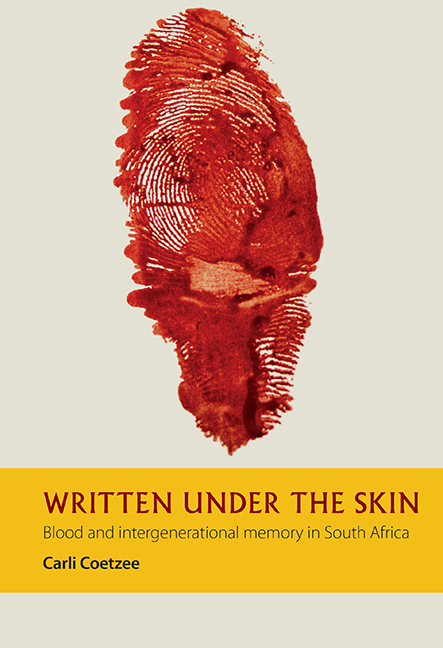Book contents
- Frontmatter
- Dedication
- Contents
- Preface
- Introduction: Piercing the Skin of the Present
- Part I
- Part II
- 5 Show Them What Cleaning Is: This Time It's for Mama
- 6 Who Can See this Bleeding? Women's Blood and Men's Blood in these #Fallist Times
- 7 The Bloody Fingerprint: We Must Document
- Bibliography
- Index
- Miscellaneous Endmatter
5 - Show Them What Cleaning Is: This Time It's for Mama
from Part II
Published online by Cambridge University Press: 26 March 2019
- Frontmatter
- Dedication
- Contents
- Preface
- Introduction: Piercing the Skin of the Present
- Part I
- Part II
- 5 Show Them What Cleaning Is: This Time It's for Mama
- 6 Who Can See this Bleeding? Women's Blood and Men's Blood in these #Fallist Times
- 7 The Bloody Fingerprint: We Must Document
- Bibliography
- Index
- Miscellaneous Endmatter
Summary
Many accounts of the South African student movement locate the beginnings of the #RMF and the later #FMF (Rhodes Must Fall and Fees Must Fall) movements in the bucket of human excrement that Chumani Maxwele brought on to the campus of the University of Cape Town on 9 March 2015, and emptied on to the statue of Cecil John Rhodes (Booysen 2016: 3). While origin narratives can never be trusted completely (there are, for example, other versions that locate the beginnings of this wave of student activism elsewhere, that start earlier, or that relate his actions more clearly to service provision protests involving excrement), it is nevertheless a powerful story, drawing attention to questions of dirt, cleansing and the often disjointed and disorienting journeys many students have to make between home and the university campus.
In this chapter I make two linked arguments. The first is that discourses around cleaning, cleansing and dirt are suggestive as a way of understanding some of the demands of the student movement. The first part of the chapter traces the life cycles of various forms of dirt and cleansing in the debate about the nature of the university and its historic and symbolic legacies. The second part of the argument is that these dirt discourses are informed by notions of blood and belonging. In other words, I read the student movement through blood and not through shit. It is not unusual for student movements to claim allegiance to workers’ movements (Ayelew n.d.; Zeilig 2007), and this was the case too in South Africa. Striking in the South African student movement of 2015 and onwards have been the utterances of identification with ‘our mothers the domestic workers’ (and sometimes, but less frequently, ‘our fathers’). Through these statements, students were making a complaint about fees and the economic barriers faced by those from cash-poorer homes trying to enter tertiary education. This aspect of the student movement has often been interpreted through the lens of class struggle, and I return to this point below. What is striking here is the assertion of intergenerational allegiance, and the ways in which kinship and blood ties figure.
There is a conceptual gain in reading this proclaimed affiliation of blood and belonging alongside and over the dirt discourses.
- Type
- Chapter
- Information
- Written under the SkinBlood and Intergenerational Memory in South Africa, pp. 103 - 120Publisher: Boydell & BrewerPrint publication year: 2019



